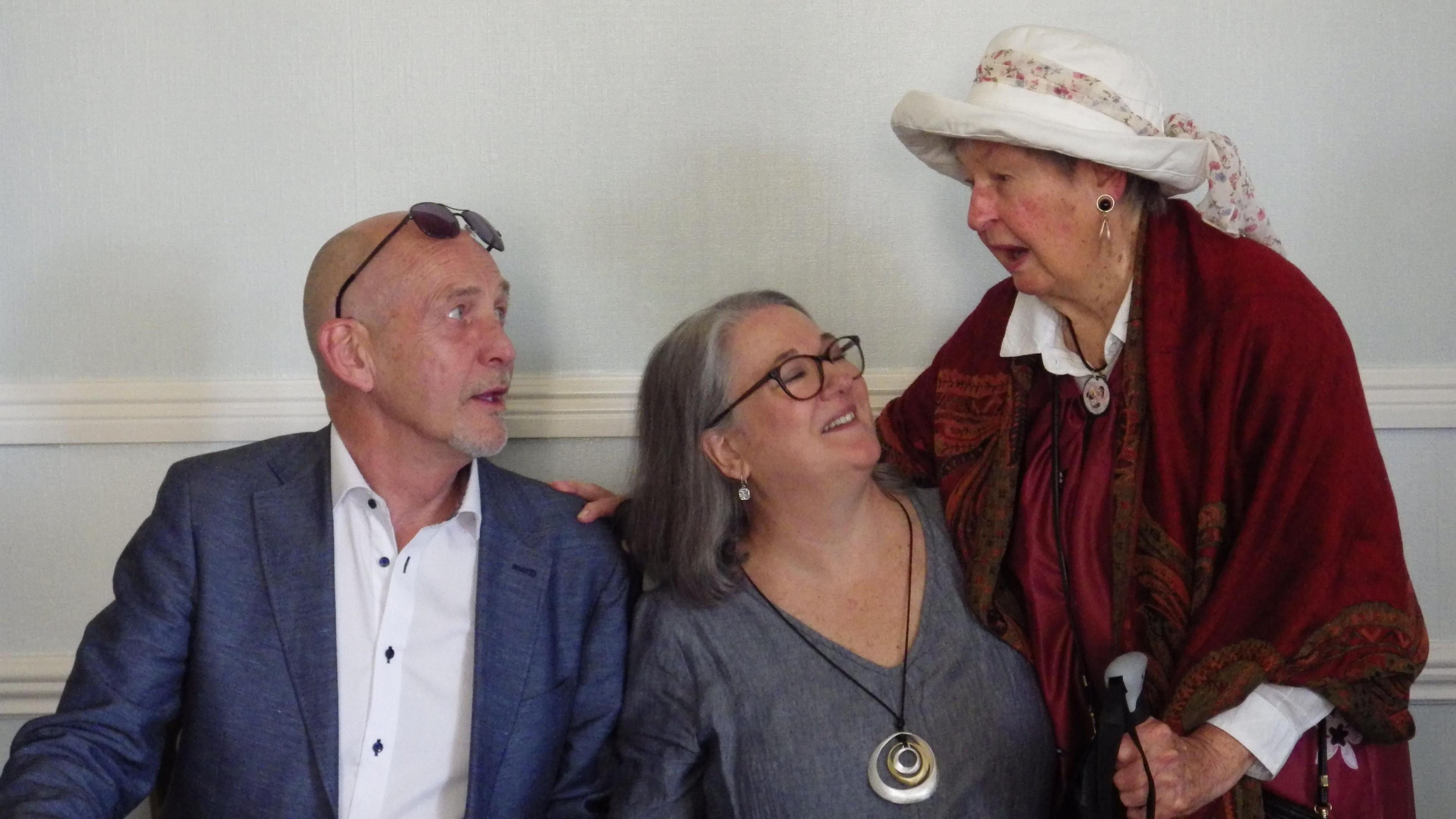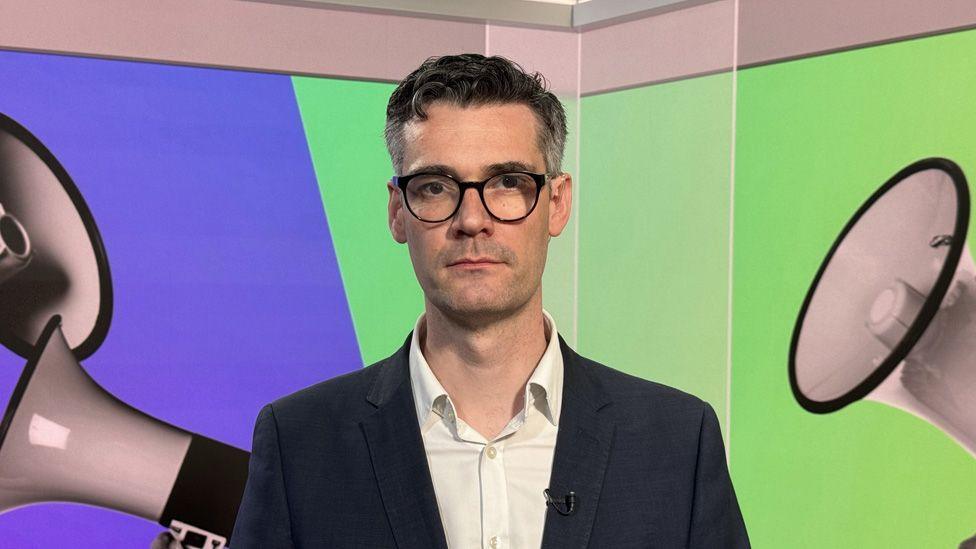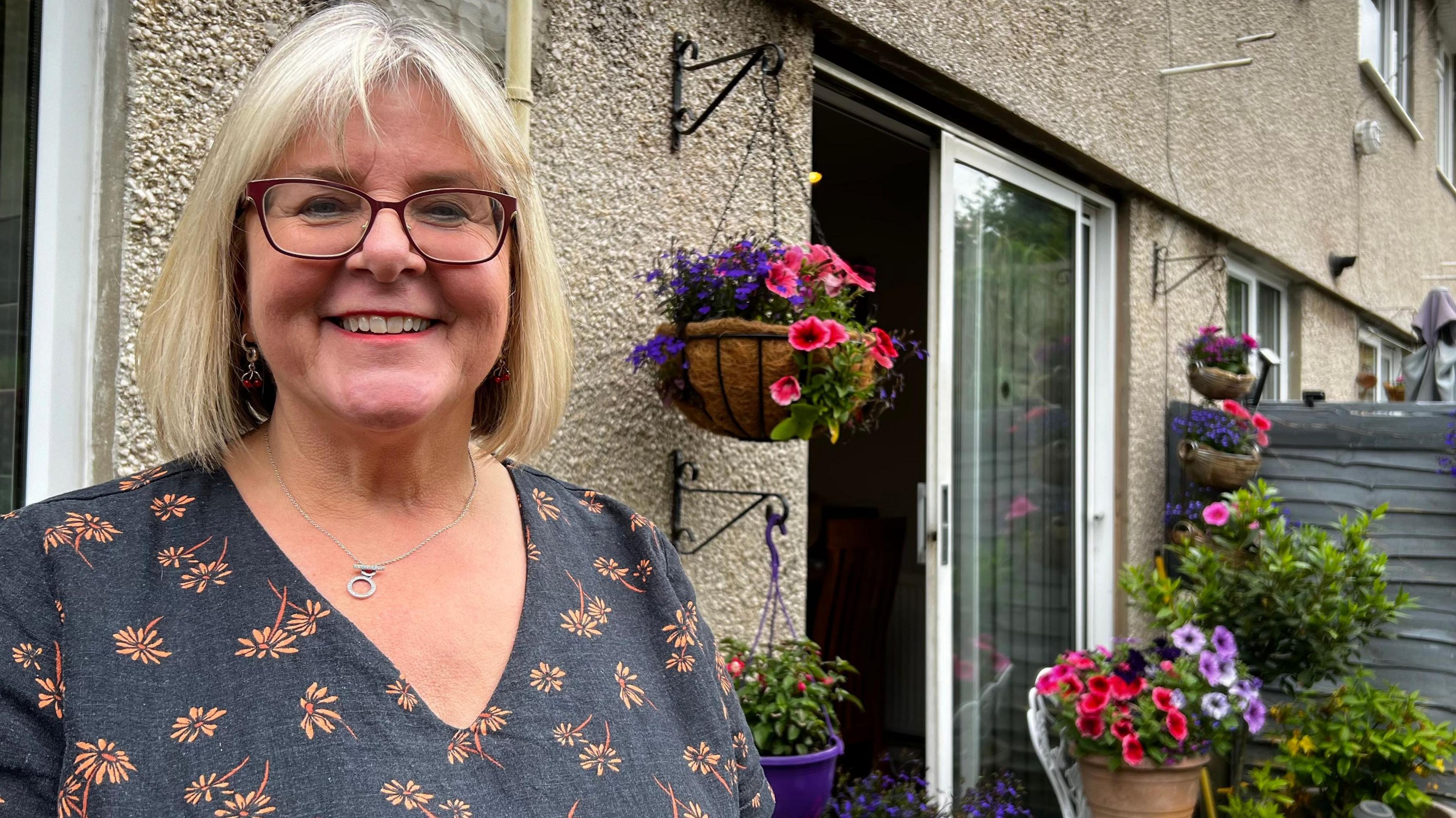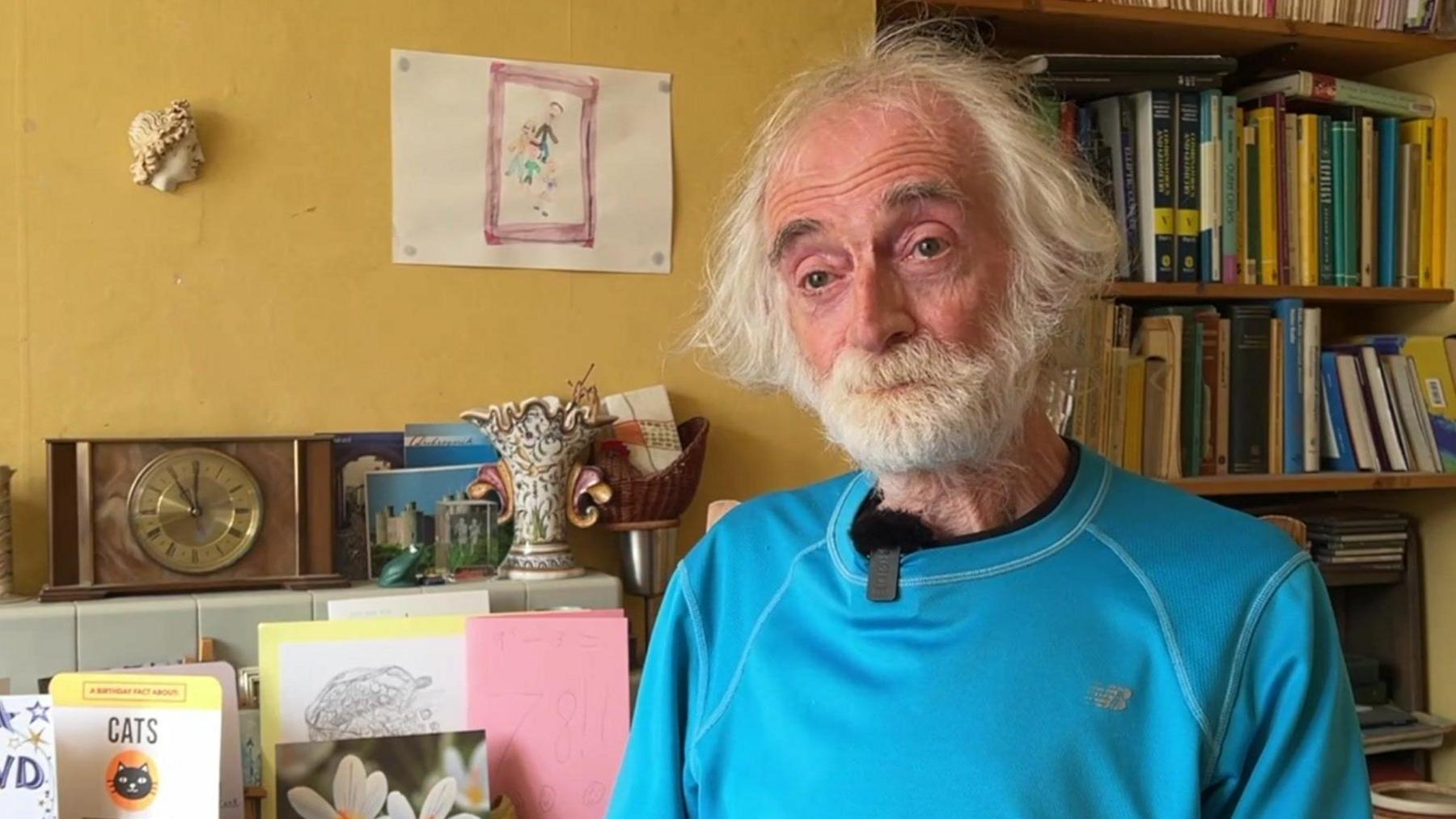Unpaid carers 'step into a big great void'

Ingrid Jones with her husband and mother, who is one of two adults she cares for
- Published
Ingrid Jones, 57, prefers not to describe herself as an unpaid carer.
"I do it out of love," says Ingrid, from Cambridge, who supports her mother and a neighbour on top of full-time paid work.
"There are so many people like me, who see this big great void and step into it."
The national charity Carers UK has called for the next government to deliver a national strategy to support the UK's estimated 10 million unpaid carers.
'Everything costs more'
In a typical week, Ingrid cooks hot meals for her friend, who uses a wheelchair after surviving a stroke, and takes him to appointments.
"If it weren't for me, he'd be living off microwave meals," says Ingrid.
"His motor skills are so bad that he can't get things safely in and out of the microwave, and he's already had burns from dropping tea on his lap."
Ingrid stepped in to help her friend when she realised he came back from hospital with "absolutely no support".
She said: "When you're disabled your income is so restricted, you physically cannot work, but at the same time everything costs more."

An estimated 10 million adults are unpaid carers in the UK
At the weekends, Ingrid supports her 84-year-old mother Kath with shopping and other tasks.
"I go every weekend with everything that needs doing and I'm constantly on the end of the phone for her."
Ingrid admits it is a lot of work on top of her career as a business service manager.
"I reach burnout a lot quicker as I'm just so busy, I'm getting older and you don't bounce back as quickly," she says.
Call to action
Ingrid contacted the BBC via Your Voice, Your Vote, a chance for you to get in touch and let us know what is on your mind in the run up to polling day.
Healthcare is one of the biggest issues among the submissions we have received.
Ingrid says she wants the next government to fill in the gaps for carers at risk of "cracking under the strain" or who need care for themselves.
An estimated 10 million adults are unpaid carers in the UK, according to Carers UK, many looking after disabled, older or ill relatives or friends.
Helen Walker, its chief executive, said: "Caring can have a profound impact on every aspect of life and wellbeing.
"That's why we need to see a future government deliver action in the form of a National Carers Strategy."
How the parties plan to tackle the issue
The Conservatives said they would go ahead with a proposed £86,000 cap on social care costs for people who are older or disabled in England if they win the election.
Labour said it would work towards a National Care Service, underpinned by national standards for care quality. The principle would be “home first” care, to help people live independently.
The Liberal Democrats said they would increase carers allowance, introduce a statutory guarantee of regular respite breaks for unpaid carers, and introduce paid carer's leave.
The Green Party plans to introduce free personal care in England similar to the system in Scotland and increase pay rates and introduce a career structure for paid carers.
Reform UK is calling for a Royal Commission of Inquiry into the social care system. It wants more collaboration between central government, local authorities, social care providers and home carer support groups.
If you’ve got an issue you would like us to explore, contact Your Voice, Your Vote.
Follow Cambridgeshire news on Facebook, external, Instagram, external and X, external. Got a story? Email eastofenglandnews@bbc.co.uk, external or WhatsApp us on 0800 169 1830
Related topics
- Published13 June 2024

- Published13 June 2024

- Published14 June 2024
